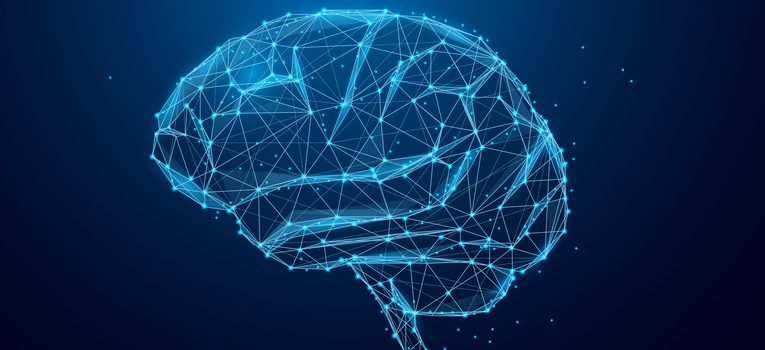Artificial Intelligence (AI) Fundamentals and Risks
Tuesday, Oct. 17, 2023
Forum: 9:00-10:15am PST
Hands-on Part 2: 10:30am-12:00pm PST
NSF Hybrid Event
In-Person at Aspen Room
Montreux Golf & Country Club
18077 Bordeaux Drive, Reno, NV 89511
Breakfast served 8:00-9:00, Forum 9:00-10:15am, Part 2 10:30am-12:00pm
Virtual on Zoom
Forum 9:00-10:15am PST
Register in advance for this webinar:
https://us06web.zoom.us/webinar/register/WN_us9yQU-GSdCqEg5-W3YUUA
After registering, you will receive a confirmation email containing information about joining the webinar.
Forum Speakers and AI Trainers:
Caleb and Rex Briggs
Reno Residents, technology experts, and AI authors
Thank you to everyone who joined us on September 20th for a very informative and enlightening forum about Domestic Terrorism. Sean Jolley, FBI Supervisory Special Agent, gave an excellent overview of how the FBI defines domestic terrorism and how it is handling the rapid rise in cases over the last few years. Sean was joined by Mike Matthews (Protective Security Advisor for Nevada, DHS/CISA) who talked about how DHS works with FBI and other law enforcement groups to investigate and respond to domestic terrorism incidents. Unfortunately, the FBI did not authorize NSF to record the event or post Sean’s slides. He did provide the links below as useful references. We will post these and other resource materials on the NSF website.
- GAO report on Domestic Terrorism. The stats and charts should look familiar: https://www.gao.gov/assets/gao-23-104720.pdf
- U.S. Violent Extremist Mobilization Indicators (2021 Edition): https://www.dni.gov/files/NCTC/documents/news_documents/Mobilization_Indicators_Booklet_2021.pdf
- Mobilization Indicators Reference guide: https://www.dni.gov/files/NCTC/documents/jcat/firstresponderstoolbox/20221028_US_Violent_Extremist_DREF.pdf
About our NSF program on Tuesday, October 17th…
As I mentioned in our last program announcement, NSF is introducing some new program formats that will provide options for more in-depth discussion and learning about timely and important national security topics. Our upcoming event will be our first NSF Forum-Workshop, delving into the basics of how Artificial Intelligence (AI) works, why it is essential to national security, and what are the risks. NSF is very lucky to have two leading AI experts in residence in Reno, Caleb and Rex Briggs. Caleb, an undergraduate student and author of a forthcoming book on AI by MIT Press, is the future of technology personified. He and his peers will be pivotal in navigating us into a brave new world powered by both the security risks and benefits of AI.
“Artificial Intelligence (AI) is expected to transform all sectors of society, including, according to Department of Defense (DOD), the very character of war. Failure to adopt and effectively integrate AI technology could hinder national security. As a result, DOD is investing billions of dollars and making organizational changes to integrate AI into their warfighting plans.” (GAO, 19 Apr 2022 in ‘How Artificial Intelligence Is Transforming National Security’)
“In the last several months, there has been no shortage of headlines speculating about the potential for Artificial Intelligence (AI) to spread misinformation, displace jobs, or even lead to “societal-scale risks” like nuclear war. Largely absent from the discussion has been the understanding that with AI, the United States has been given an economic and national security lifeline.” (Klon Kitchen, 15 Aug 2023, in ‘AI is a National Security Lifeline’, American Enterprise Institute)
“Like past technological waves, AI will pair extraordinary growth and opportunity with immense disruption and risk. But unlike previous waves, it will also initiate a seismic shift in the structure and balance of global power as it threatens the status of nation-states as the world’s primary geopolitical actors. Whether they admit it or not, AI’s creators are themselves geopolitical actors, and their sovereignty over AI further entrenches the emerging “technopolar” order—one in which technology companies wield the kind of power in their domains once reserved for nation-states.” (Ian Bremmer and Mustafa Sulyman, in ‘The AI Power Paradox’, Foreign Affairs, Sep/Oct 2023)
Artificial intelligence is changing the risk landscape. Understanding how AI differs from human intelligence, and how to use AI responsibly and effectively are central themes in MIT’s upcoming book, The AI Conundrum. Authors Caleb Briggs and Rex Briggs will lead a thought-provoking presentation followed by an optional hands-on training in AI. They will provide an overview of the fundamentals and risks of AI during our usual NSF breakfast forum (8:00-10:15a). After a short break they will provide a working hands-on session for anyone who wants to understand more about AI tools (10:30-12:00p).
You are welcome to come just for the breakfast forum or stay on for the hands-on session. To accommodate both sessions, we will be holding this event at the Aspen Room at Montreux Golf & Country Club. We will also have a Zoom link open for both sessions. Our speakers are well-practiced in hybrid presentations and trainings.
As an added bonus, all attendees (in-person and on Zoom) will receive a hard copy of the book when it is released for publication by MIT in early 2024. An advance electronic version will be sent to those who register for this event (in-person or on Zoom), so you can do some homework in advance.
So, bring yourselves, friends and colleagues, a laptop (optional if you want one-on-one AI tutoring), lots of questions, and an open mind about what the future holds.
Future NSF events:
- NSF Friends of the Forum and Corporate Sponsor Reception Tuesday evening October 17 evening (5:00-7:00p) at Montreux Golf and Country Club – This will be a reception to thank our Friends of the Forum sponsors, donors to our 2023 Youth Security Forum, and out Corporate Sponsors. Tony Bancroft (GAMCO) will be sharing his insights on the ins and outs of defense industries in the US and China from his perspective of an US Air Force officer and research analyst for Gabelli Funds.
- NSF-Braver Angels Common Ground Workshop on Saturday Nov 4th 9:00-12:00, Scheels Training Room (2nd floor), 1200 Scheels Drive, Sparks, NV – Following up from our March Forum event where our Braver Angels partners discussed their efforts to promote civil discourse and bridge the partisan divide, NSF will be hosting a Common Ground workshop. We opted to hold this on the weekend just prior to 2023 November elections in preparation for a contentious 2024 election year. Participants will learn and practice skills on how to find common ground as you discuss important and timely national security topics with your friends, family, and fellow community members. Civil discourse is essential for our national security and our democracy. This will be a chance to practice skills that can help bridge division and encourage the healing we need to keep our nation secure.
- Spring Tours – In addition to our forum events, we are lining up several tour options in the spring including a return visit to the Nevada National Security Site (NNSS), courtesy of our partner and corporate sponsor Mission Support and Test Services (MSTS), a tour of Naval Air Station Fallon, and a visit to a counterterrorism training facility. Stay tuned for details and sign-up links.
Caleb Briggs began coding when he was 10. By 14, he was instructing dozens of adult teachers to code in MIT’s Scratch program, so they could carry what they learned from him into their classrooms in the wider community. In high school, his math skills were beyond the curricula, so he attended Harvey Mudd College and later, Stanford University to advance his skills. At the same time, Caleb attended Sage Ridge, a small private high school in Reno-Tahoe area of Nevada, where he wrote a variety of AI programs using genetic algorithms, computer vision and natural language models. It was through this work, going deep into the mathematics of AI, that he recognized the weaknesses of AI. His senior thesis was entitled the Fundamental Limitations of AI, which MIT commissioned for publication. Caleb now attends Reed College, where he studies pure math and computer science.
Rex Briggs is an award-winning marketing researcher and data scientist. Rex has been working with machine learning and neural networks for over 30 years. Rex was the first director of research for WIRED, and a pioneer in digital measurement and AI with five patents. The Market Research Council named Rex as the 2022 Change Maker for his work with the Ad Council on applying AI. He is co-author of What Sticks (2006), a book that has been required reading at Wharton, Harvard, and other leading universities. He is also author of SIRFs Up, How Software and Algorithms Are Changing Marketing (2012). Rex is a board member at Cal Poly, SLO, College of Business Analytics’ program, and a business founder that made it to the top of Inc. 500 fastest growing companies multiple times. He successfully exited his AI business, Marketing Evolution, in 2019. He now enjoys mentoring growth stage companies on how to scale their business and training corporations to build an AI-first with responsibility.
The National Security Forum is a non-partisan, educational, nonprofit organization dedicated to fostering civil discourse and informed discussion about timely and important national security topics. We bring expert speakers from around the U.S. to talk about national and international security, domestic and foreign terrorism, economic and financial threats, the safety of our food and water supply, energy policy, electrical grid stability, and a variety of other topics that affect all Americans. The National Security Forum partners with the Washoe County School District to host an annual Youth Security Forum to encourage future generations national security leaders.
To support NSF continuing to bring national security programs to our community and our local students please join NSF as a member or Friend of the Forum at: https://nationalsecurityforum.org/membership/about-our-membership/


